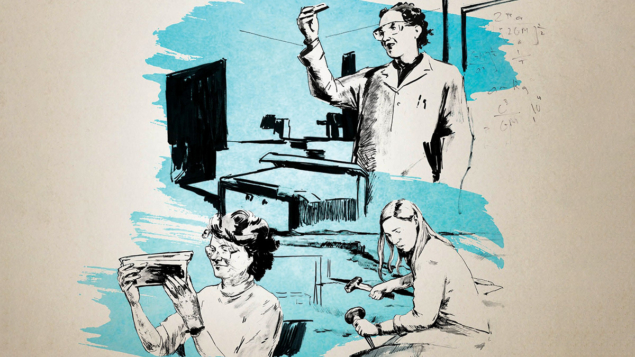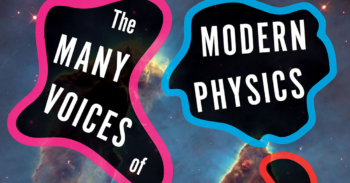Picture a scientist, directed by Ian Cheney and Sharon Shattuck, screened at the CERN Globe on 10 February 2022

“If you had to picture a scientist, what would it look like?” That is the question driving the documentary film Picture a Scientist, first released in April 2020 and screened on 10 February this year at the CERN Globe of Science and Innovation. Directed by Emmy-nominated Sharon Shattuck and Ian Cheney, whose previous productions include From This Day Forward (2016) and The Long Coast (2020), respectively, the 97 minute film tackles the difficulties faced by women in STEM careers. It is centered on the experiences of three US researchers – molecular biologist Nancy Hopkins (MIT), chemist Raychelle Burks (St. Edward’s University) and geologist Jane Willenbring (UC San Diego) – among others who have faced various forms of discrimination during their careers.
Hopkins talks about the difficulties she faced as a student in the 1950s and 1960s, when the education system didn’t offer many maths and science lessons to girls, and shares an experience of sexual harassment involving a famous biologist during a lab visit. Willenbring also experienced various mistreatments, including inappropriate nicknames and harassment from a colleague during a 1999 field trip in Antarctica. The film describes how these two anecdotes are just the tip of the iceberg of discrimination that has historically affected female scientists and is still present today. Less visible examples include being ignored in meetings, being treated as a trainee, receiving inappropriate emails and not getting proper credit for work.
Burks, who is Black, explains how the situation is even worse for women of different ethnic groups, as they are even more underrepresented in science. During her childhood, she recalls, most female Black scientists were fictional, such as Star Trek’s communications officer Nyota Uhura.
Being a scientist does not rely on race or gender but only on the love for science
The film highlights the importance of female scientists speaking out to help people see beyond the tip of the iceberg and allow them to act. Hopkins recounts how she once wrote a letter to the president of MIT in which she described systemic and invisible discrimination such as office space being larger for men than for women. Supported and encouraged by female colleagues, it led to a request to the dean of MIT for greater equality. Another example ultimately led the president of Boston University to dismiss the male researcher who had bullied Willenbring, after receiving many reports of gender harassment.
However, even though progress has been made, the film makes it clear – for example through graphs showing the considerable underrepresentation of women in science – that there is still much to do. “By its own nature science itself should be always evolving,” says Burks: we should be able to identify the idea of a scientist as someone fascinated about research rather than based on its stereotype.
Videos recreating scenes of the bullying described and footage from old TV shows showing the historical mistreatment of women complement candid accounts from those who have experienced discrimination, allowing the viewer to understand their experiences in an impactful way. Some scenes are hard to watch, but are necessary to understand the problem and therefore take steps to increase the recognition of women in STEM careers.
This film raises the often silenced voice of female scientists who have been discriminated against, and makes it clear that being a scientist does not rely on race or gender but only on the love for science. “If you believe that passion and ability for science is evenly distributed among the sexes, then if you don’t have women, you have lost half of the best people,” states Hopkins. “Can we really afford to lose those top scientists?”





